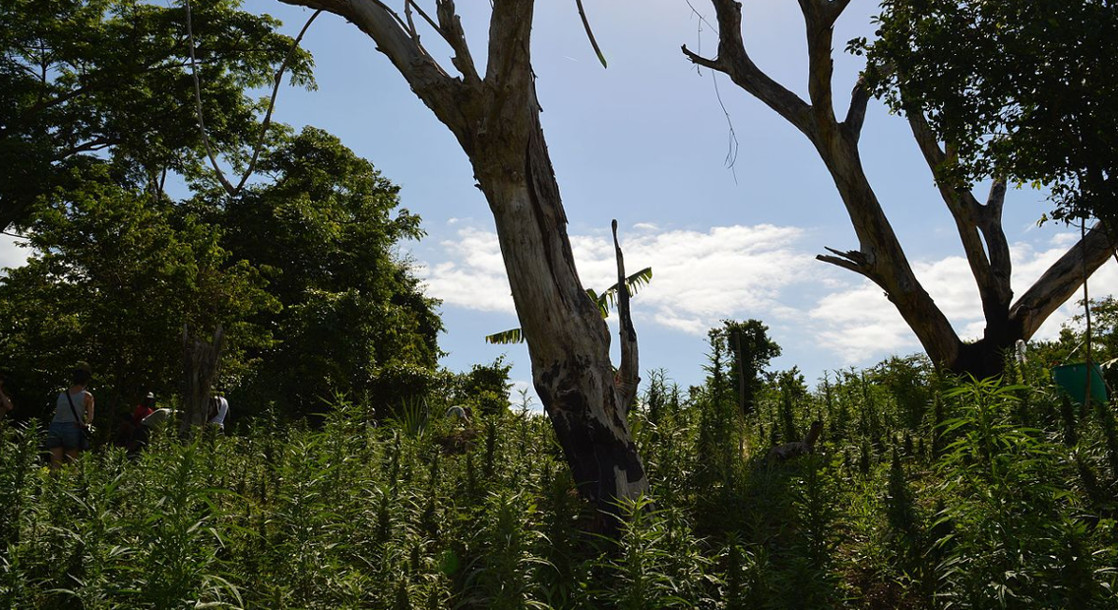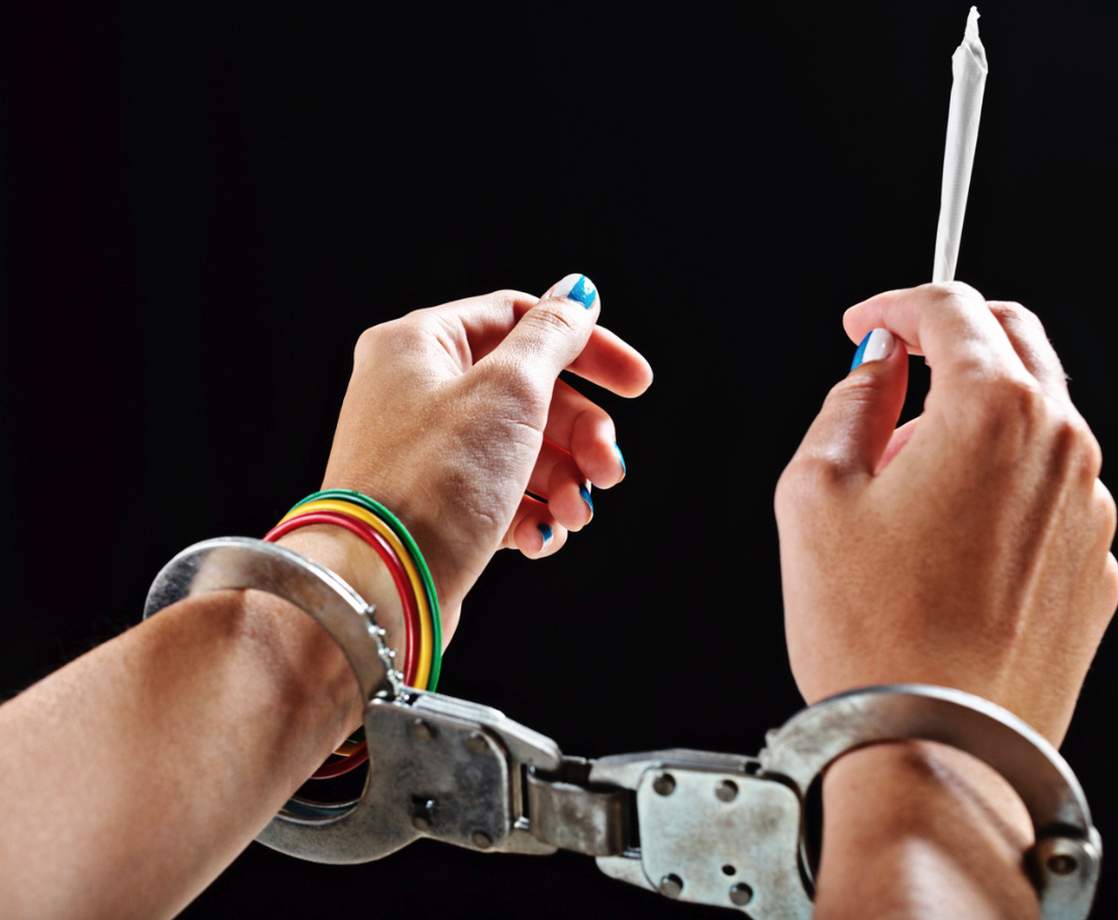Cannabis farm in Westmoreland, Jamaica; photo via Cannabis Pictures
Although most people consider Jamaica and ganja to be virtually synonymous, the island's government has actually been slow to embrace a legal cannabis industry. That is finally changing, as the country has legalized medical cannabis, decriminalized low-level possession, and rolled out a new licensing system that will allow farmers to legally grow marijuana for medical or scientific purposes. But many of the country's existing cannabis farmers, who have been growing weed under the radar for decades, are concerned that they will be left out of the burgeoning new industry.
Interest in getting involved in the legal cannabis industry has been strong, and the country's Cannabis Licensing Authority (CLA) has received well over 200 applications for licenses since last summer. As of last month, however, the CLA has only granted one cultivation license and one processing license. In addition to being time-consuming, the application process is expensive, which could make it difficult for local, small-scale farmers to compete with wealthy, foreign investors.
A Jamaican farmer going by the pseudonym of Baxter, who currently has a small, illegal cannabis grow-op, told PRI’s The World that getting a legal license was prohibitively expensive. “It's not easy, lots of money to get the license,” he said. “Lots of thousands of dollars.” The license application fee is $300, and if the license is approved, farmers must pay thousands of dollars for each acre of cannabis crop. On top of this, cannabis cultivators must pay additional fees to cover services like processing, transportation, and security.
Kim Ford, another local farmer and member of her local chapter of the Hemp and Ganja Growers Association, is concerned that the licensing fees will allow foreign investors to dominate her country's cannabis industry. “They make more money and then they come here and can pay for licensing, build a whole building, buy a piece of land to put it on, and can move forward,” she told The World. Foreign investors have already invested millions in hotels, sugarcane cultivation, and bauxite mining in the country.
Ras Iyah V, a Rastafari elder and CLA board member, said that some of the farmers' concerns are unfounded. “If people are paying attention to what is going on, then some of these fears would be alleviated,” he told The World. Iyah V explained that although the CLA has held several community meetings to discuss the legal cannabis industry, farmers often do not attend. He added that the CLA is fully aware of farmers' concerns over fees, and that they were willing to waive fees for small farmers until after their crops are sold. The CLA is also working on a pilot program that would let farmers share costs.










